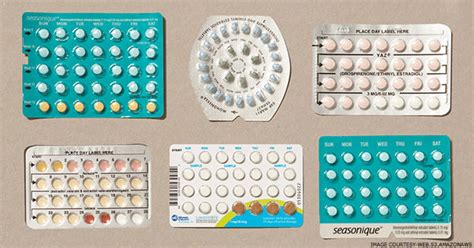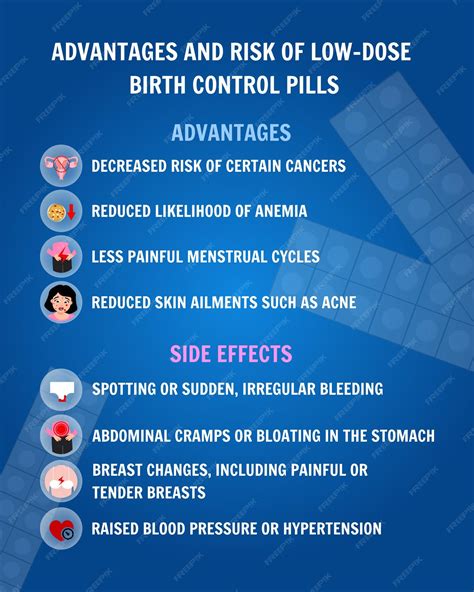Intro
Discover various birth control pill options, including combination and progestin-only pills, to find the best contraceptive method for your needs, considering effectiveness, side effects, and hormonal benefits.
The discovery of birth control pills has revolutionized the way people approach family planning and reproductive health. Since their introduction in the 1960s, birth control pills have become one of the most popular forms of contraception, offering women a convenient and effective way to prevent unwanted pregnancies. With numerous options available, choosing the right birth control pill can be overwhelming, especially for those who are new to hormonal contraception. In this article, we will delve into the world of birth control pill options, exploring their benefits, mechanisms, and types to help readers make informed decisions about their reproductive health.
The importance of birth control pills extends beyond pregnancy prevention. They have been shown to regulate menstrual cycles, reduce menstrual cramps, and even alleviate symptoms of polycystic ovary syndrome (PCOS) and endometriosis. Moreover, birth control pills have been linked to a reduced risk of certain cancers, such as ovarian and endometrial cancer. With so many benefits, it's no wonder that millions of women around the world rely on birth control pills as their primary form of contraception. However, with great power comes great responsibility, and it's essential to understand the different types of birth control pills, their side effects, and how they interact with other medications.
As we navigate the complex world of birth control pill options, it's crucial to consider individual needs and health status. Women with certain medical conditions, such as high blood pressure or a history of blood clots, may need to choose a specific type of birth control pill or avoid them altogether. Similarly, women who smoke or are over 35 years old may be at a higher risk of complications and should discuss their options with a healthcare provider. By understanding the various types of birth control pills and their characteristics, women can make informed decisions about their reproductive health and choose the best option for their unique needs.
Types of Birth Control Pills

There are several types of birth control pills, each with its own unique characteristics and benefits. The most common types of birth control pills are combination pills, which contain both estrogen and progestin. These pills are further divided into two categories: monophasic and multiphasic. Monophasic pills contain the same amount of estrogen and progestin in each pill, while multiphasic pills contain varying levels of hormones throughout the pack. Progestin-only pills, also known as mini-pills, are another option for women who cannot take estrogen or prefer a lower dose of hormones.
Combination Pills
Combination pills are the most popular type of birth control pill, accounting for over 80% of all prescriptions. They contain both estrogen and progestin, which work together to prevent ovulation and thicken cervical mucus, making it difficult for sperm to reach the egg. Combination pills are available in various formulations, including monophasic, multiphasic, and extended-cycle pills. Monophasic pills, such as Marvelon and Microgynon, contain the same amount of estrogen and progestin in each pill, while multiphasic pills, such as Triphasil and Trinordiol, contain varying levels of hormones throughout the pack.Progestin-Only Pills

Progestin-only pills, also known as mini-pills, are a good option for women who cannot take estrogen or prefer a lower dose of hormones. These pills contain only progestin, which thickens cervical mucus and prevents ovulation. Progestin-only pills are available in various formulations, including Micronor and Nor-QD. They are often prescribed for women who are breastfeeding, as they do not affect milk production. However, progestin-only pills may not be as effective as combination pills, and women may experience irregular bleeding or spotting.
Extended-Cycle Pills
Extended-cycle pills are a type of combination pill that allows women to have fewer periods per year. These pills contain the same amount of estrogen and progestin as monophasic pills but are taken for a longer period, typically 84 days, followed by a 7-day hormone-free interval. Extended-cycle pills, such as Seasonale and Seasonique, are a good option for women who experience heavy or painful periods, as they can reduce the frequency and severity of menstrual bleeding.Benefits of Birth Control Pills

Birth control pills offer numerous benefits beyond pregnancy prevention. They can regulate menstrual cycles, reduce menstrual cramps, and even alleviate symptoms of PCOS and endometriosis. Additionally, birth control pills have been linked to a reduced risk of certain cancers, such as ovarian and endometrial cancer. Women who take birth control pills may also experience improvements in acne, as the hormones in the pills can help regulate sebum production and reduce inflammation.
Risks and Side Effects
While birth control pills are generally safe and effective, they can cause side effects and increase the risk of certain health problems. Common side effects include nausea, breast tenderness, and mood changes. More serious risks include blood clots, stroke, and heart attack, particularly in women who smoke or have a history of high blood pressure. Women who take birth control pills should be aware of these risks and discuss their individual situation with a healthcare provider.Choosing the Right Birth Control Pill

With so many birth control pill options available, choosing the right one can be overwhelming. Women should consider their individual needs and health status, including their age, medical history, and lifestyle. Those who smoke or have a history of high blood pressure may need to choose a specific type of birth control pill or avoid them altogether. Women who experience heavy or painful periods may prefer extended-cycle pills, while those who cannot take estrogen may opt for progestin-only pills.
Consulting a Healthcare Provider
Consulting a healthcare provider is essential when choosing a birth control pill. They can help women determine the best option for their individual needs and health status. A healthcare provider will consider factors such as medical history, lifestyle, and personal preferences when recommending a birth control pill. They can also provide guidance on how to take the pill, what to expect, and how to manage side effects.Conclusion and Next Steps

In conclusion, birth control pills are a highly effective and convenient form of contraception that offers numerous benefits beyond pregnancy prevention. With various types of birth control pills available, women can choose the best option for their individual needs and health status. By understanding the different types of birth control pills, their benefits, and potential risks, women can make informed decisions about their reproductive health. If you're considering birth control pills, consult with a healthcare provider to determine the best option for you.
We invite you to share your thoughts and experiences with birth control pills in the comments below. Have you used birth control pills in the past? What were your experiences like? Do you have any questions or concerns about birth control pills? Share this article with your friends and family to help them make informed decisions about their reproductive health.
What are the most common types of birth control pills?
+The most common types of birth control pills are combination pills, which contain both estrogen and progestin, and progestin-only pills, which contain only progestin.
How do birth control pills work?
+Birth control pills work by preventing ovulation, thickening cervical mucus, and altering the lining of the uterus to prevent implantation of a fertilized egg.
What are the benefits of birth control pills beyond pregnancy prevention?
+Birth control pills can regulate menstrual cycles, reduce menstrual cramps, and even alleviate symptoms of PCOS and endometriosis. They have also been linked to a reduced risk of certain cancers, such as ovarian and endometrial cancer.
How do I choose the right birth control pill for me?
+Consult with a healthcare provider to determine the best birth control pill option for your individual needs and health status. They will consider factors such as your medical history, lifestyle, and personal preferences when recommending a birth control pill.
What are the potential risks and side effects of birth control pills?
+Common side effects of birth control pills include nausea, breast tenderness, and mood changes. More serious risks include blood clots, stroke, and heart attack, particularly in women who smoke or have a history of high blood pressure.
